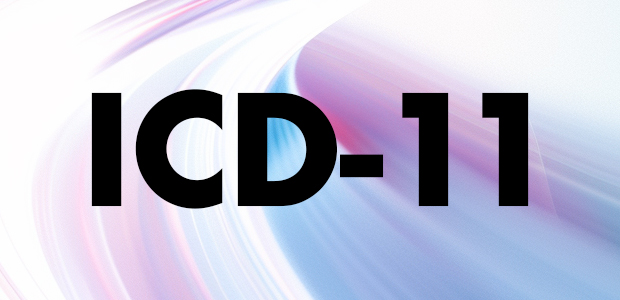The healthcare industry is on the cusp of a significant transformation with the introduction of the International Classification of Diseases, 11th Revision (ICD-11). This comprehensive update to the global standard for health data, clinical documentation, and statistical aggregation promises to revolutionize medical billing practices.
The key features of ICD-11 and its potential impacts on the healthcare sector, with a particular focus on medical billing operations are examined.
Background
 The International Classification of Diseases (ICD) system, maintained by the World Health Organization (WHO), has been the cornerstone of health information and reporting since the late 19th century. The current version, ICD-10, was endorsed by the World Health Assembly in 1990 and implemented in WHO member states starting in 1994. The United States adopted ICD-10 in 2015.
The International Classification of Diseases (ICD) system, maintained by the World Health Organization (WHO), has been the cornerstone of health information and reporting since the late 19th century. The current version, ICD-10, was endorsed by the World Health Assembly in 1990 and implemented in WHO member states starting in 1994. The United States adopted ICD-10 in 2015.
In 2019, the World Health Assembly endorsed ICD-11, which officially came into effect on January 1, 2022. However, the transition period is expected to span several years, allowing healthcare systems worldwide to adapt to the new classification system.
Key Features of ICD-11
Digital-First Approach
ICD-11 represents a paradigm shift in health classification systems, being the first version designed primarily for electronic health records (EHRs). This digital-first approach aligns with the increasing digitization of healthcare systems globally.
Enhanced Usability
The new classification system boasts a more intuitive structure and improved user-friendliness. This enhancement aims to facilitate more accurate coding by healthcare providers, potentially reducing errors and improving efficiency.
Expanded Code Set
ICD-11 features a significantly larger code set compared to its predecessor. This expansion allows for more granular and precise coding, including new categories for emerging health issues such as gaming disorder and climate change-related health effects.
Interoperability
ICD-11 is designed to integrate seamlessly with other classification systems, such as SNOMED CT (Systematized Nomenclature of Medicine — Clinical Terms). This interoperability is expected to enhance health information exchange across different systems and international borders.
Regular Updates
Unlike previous versions that required major revisions every few decades, ICD-11 is structured to accommodate annual updates. This feature ensures the classification system remains current with medical advances and emerging health issues.
Impact on Medical Billing Practices
Enhanced Coding Accuracy
The expanded code set and improved specificity of ICD-11 are anticipated to result in more accurate coding. This increased precision may lead to a reduction in claim denials and resubmissions, potentially accelerating reimbursement processes and improving revenue cycle management.
Streamlined Coding Process
The improved usability of ICD-11 is expected to streamline the coding process. The intuitive structure and enhanced search functions may reduce the time required for code selection, allowing coding professionals to focus on ensuring accuracy and compliance.
Advanced Data Analytics
The granularity of ICD-11 codes will provide more detailed health data, opening new possibilities for healthcare analytics. This enhanced data could drive improvements in population health management and facilitate more targeted interventions.
Transition Challenges
The implementation of ICD-11 will inevitably present challenges. Healthcare organizations will need to invest in software updates, staff training, and potential workflow revisions. However, the long-term benefits are expected to outweigh these initial obstacles.
Potential for Improved Reimbursement
More accurate and specific coding may lead to improved reimbursement rates. Insurance providers will have access to more detailed information about services rendered, potentially resulting in fairer compensation for healthcare providers.
International Standardization
For organizations operating in global health settings or dealing with international patients, ICD-11 offers improved standardization across countries. This could streamline the process of handling claims for care provided abroad and facilitate international health data comparisons.
Preparing for the Transition
To ensure a smooth transition to ICD-11, healthcare organizations should consider the following strategies:
- Stay Informed: Monitor announcements from relevant authorities regarding the implementation timeline in your jurisdiction.
- Proactive Training: Initiate staff training on ICD-11 structure and coding conventions well in advance of the implementation date.
- Technology Assessment: Evaluate current billing software and EHR systems for ICD-11 compatibility. Plan for necessary upgrades or replacements.
- Process Optimization: Use the transition as an opportunity to review and optimize current billing processes.
- Organizational Communication: Ensure all stakeholders within the organization are aware of the upcoming changes and their potential impacts.
- Dual Coding Preparation: Develop strategies to manage potential dual coding requirements during the transition period.
Broader Implications
The implementation of ICD-11 extends beyond medical billing practices. Its potential impacts include:
- Enhanced Patient Care: More detailed health information may lead to more informed treatment decisions and improved patient outcomes.
- Global Health Monitoring: ICD-11’s ability to capture emerging health issues could enhance global health surveillance and response capabilities.
- Research Advancements: The detailed health data captured by ICD-11 could accelerate medical research and provide new insights into disease patterns and treatment efficacy.
Challenges and Concerns
Despite its potential benefits, the transition to ICD-11 presents several challenges:
- Implementation Costs: Organizations will need to invest in software updates, training, and potential productivity losses during the transition.
- Data Privacy: The increased specificity of health data necessitates robust data protection measures to ensure patient privacy.
- Complexity Management: While ICD-11 aims to simplify coding in many aspects, the expanded code set may initially increase complexity, requiring comprehensive training programs.
Long-Term Financial Implications
The transition to ICD-11 is expected to have significant long-term financial implications for healthcare organizations:
Return on Investment (ROI)
While the initial implementation of ICD-11 will require substantial investment, the long-term ROI is projected to be positive. Improved coding accuracy is likely to result in fewer claim denials and faster reimbursements, potentially leading to improved cash flow for healthcare providers.
Reduced Administrative Costs
As coders become more proficient with the new system and its improved usability features, organizations may see a reduction in the time and resources required for coding and billing processes. This efficiency gain could translate into reduced administrative costs over time.
Value-Based Care Alignment
The increased specificity of ICD-11 aligns well with the growing emphasis on value-based care models. The detailed health data captured by ICD-11 can provide a more accurate picture of patient outcomes and care quality, potentially impacting reimbursements in value-based payment systems.
Impact on Different Healthcare Sectors
The implementation of ICD-11 will affect various healthcare sectors differently:
Hospitals and Large Health Systems
These organizations are likely to face the most significant challenges during the transition due to the scale of their operations. However, they also stand to gain the most from the improved data analytics capabilities offered by ICD-11.
Small Practices and Clinics
Smaller healthcare providers may find the transition more manageable in terms of scale but might face resource constraints in implementing new systems and training staff.
Specialty Practices
Some medical specialties may see more significant changes in their coding practices due to the expanded specificity of ICD-11. For instance, mental health providers will have access to more nuanced codes for various conditions.
Health Insurance Companies
Insurers will need to update their systems to process ICD-11 codes. In the long term, the more detailed health data could lead to more accurate risk assessment and potentially new insurance product offerings.
Health Information Technology Vendors
EHR and billing software providers will need to update their products to accommodate ICD-11. This necessity could drive innovation in health IT, potentially leading to more sophisticated and user-friendly systems.
Global Health Implications
The implementation of ICD-11 has significant implications for global health:
Improved International Comparability
With a standardized, up-to-date classification system, comparing health data across different countries and regions will become more accurate and meaningful. This improvement could lead to better-informed global health policies and interventions.
Enhanced Disease Surveillance
The ability of ICD-11 to capture emerging health issues more quickly could significantly improve global disease surveillance capabilities. This enhancement is particularly crucial in an era where rapid response to potential pandemics is vital.
Support for Universal Health Coverage
The standardization brought by ICD-11 could support efforts towards universal health coverage by providing a common language for health conditions and interventions across different healthcare systems.
Facilitation of International Research
The more granular and standardized health data captured by ICD-11 could accelerate international medical research, potentially leading to faster advancements in treatments and interventions.
Ethical Considerations
The implementation of ICD-11 also raises several ethical considerations:
Data Privacy and Security
With more detailed health information being captured and potentially shared across systems, ensuring robust data privacy and security measures becomes even more critical.
Health Equity
While ICD-11 has the potential to improve healthcare globally, there’s a risk that the digital divide could exacerbate health inequities. Efforts should be made to ensure that the benefits of ICD-11 reach all populations, including those in resource-limited settings.
Potential for Misuse
The increased specificity of health data could potentially be misused, for instance, in insurance underwriting or employment decisions. Proper regulations and safeguards will be necessary to prevent such misuse.
Future Developments
Looking ahead, several developments related to ICD-11 are worth considering:
Integration with Artificial Intelligence
As AI continues to advance in healthcare, the structured data provided by ICD-11 could serve as valuable input for machine learning algorithms, potentially leading to new diagnostic and treatment insights.
Personalized Medicine
The granularity of ICD-11 codes aligns well with the trend towards personalized medicine. The detailed health data could support more tailored treatment approaches and help identify subtle differences in disease presentations across different patient populations.
Telehealth Billing
As telehealth continues to grow, ICD-11’s digital-first approach and expanded code set could facilitate more accurate billing for remote healthcare services.
Blockchain Integration
There’s potential for blockchain technology to be integrated with ICD-11 coding systems, which could enhance the security and interoperability of health data across different systems and borders.
Strategies for Successful Implementation
To ensure a successful transition to ICD-11, healthcare organizations should consider the following strategies:
Phased Implementation
A phased approach to implementation can help manage the transition more effectively. Organizations might start with pilot programs in specific departments before rolling out ICD-11 across the entire organization.
Continuous Education
Given the complexity of ICD-11 and its regular updates, organizations should implement ongoing education programs for coding staff and healthcare providers.
Cross-Functional Teams
Forming cross-functional teams that include representatives from clinical, coding, IT, and finance departments can help ensure a holistic approach to implementation.
Key Performance Indicators (KPIs)
Establishing clear KPIs to measure the impact of ICD-11 implementation can help organizations track progress and identify areas for improvement. These might include metrics such as coding accuracy rates, claim denial rates, and average reimbursement times.
Vendor Partnerships
Close collaboration with EHR and billing software vendors will be crucial for a smooth transition. Organizations should engage with their vendors early to understand their ICD-11 readiness and implementation plans.
Summary
The transition to ICD-11 represents a significant evolution in health classification systems, with far-reaching implications for medical billing practices. While the implementation process will undoubtedly present challenges, the potential benefits – including improved coding accuracy, enhanced data analytics, and better international standardization – make this a valuable advancement for the healthcare industry.
Organizations that proactively prepare for this transition, investing in training and technology updates, will be well-positioned to leverage the benefits of ICD-11. As the healthcare industry continues to evolve, embracing these changes will be crucial for maintaining efficiency, improving patient care, and driving innovation in health information management.

